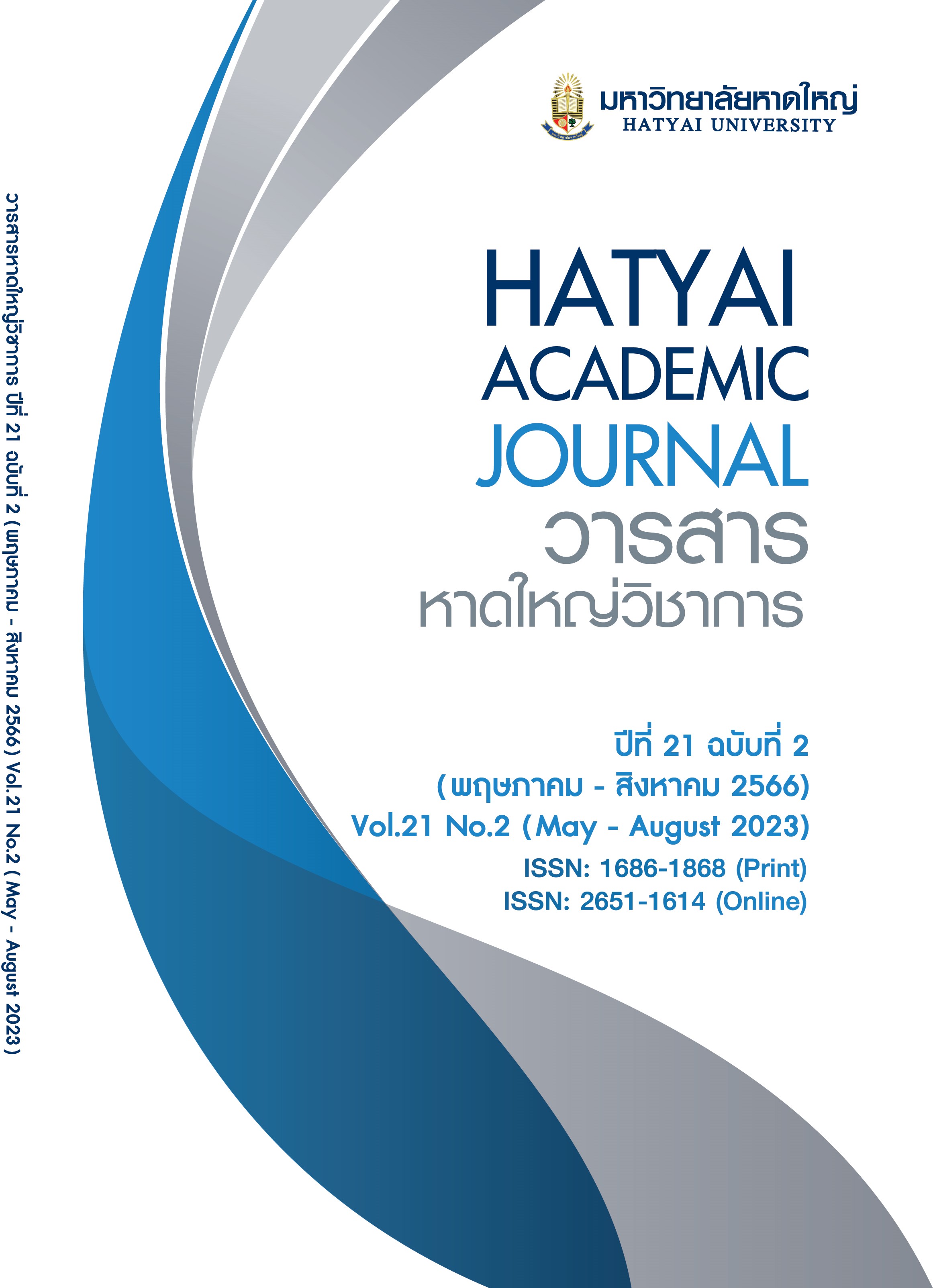Value Creation Process from Social and Cultural Capital towards the Development of Community’s Strength and Sustainability of Phapang Subdistrict, Maeprik District, Lampang Province
Main Article Content
Abstract
The objectives of the research were 1) to find out lesson learned from community’s management on the basis of community’s potentials and context 2) to propose value creation model for strengthened and sustainable community and 3) to propose collaborative community’s development plan of Phapang sub-district, Maeprik district, Lampang. This research used a qualitative research methodology which is a Participatory Action Research (PAR). Content analysis, participant observation, focus group discussion, in-depth interview were applied in this research. The research tools were interview form and draft questions for study community lessons and knowledge creation process. Data were analyzed by content analysis method and presented by descriptive method with a triangular
examination of the data. The results of the research revealed that Phapang community management originated from the problem of lack of arable land and water resources, migration of working-age people to large cities, inadequate distribution of development from the government sector, including conflict of ideas among people in the community. Thus community development creating process was applied under the concept of self-reliance through the value-oriented process of community management and the process of Creating Shared Values (CSV) which is driven by the Phapang Community Committee (social enterprise). However, the problem with the initial implementation is the conflict of ideas in the management of the community resources. Communities are strengthened by ties of kinship and village constitution, creating value from naturalresource capital, human capital and knowledge base, and community social capital. This reflects through the process of creating community values, the strength and sustainability of the community in the form of the PHAPANG Model.
Article Details

This work is licensed under a Creative Commons Attribution-NonCommercial-NoDerivatives 4.0 International License.
All published articles are evaluated by three qualified peer reviewers from various institutions through a double-blind process, where reviewers do not know the authors’ identities and authors do not know the reviewers’ identities. The content and articles in the Hatyai Academic Journal reflect the authors’ views only and are neither the opinions of the editorial board nor the responsibility of Hatyai University. The Editorial Board of the Hatyai Academic Journal allows articles to be reproduced for academic purposes, on the condition that the original source is clearly cited.
References
Luaephong, P. (2012). The competency development of human resource. Executive Journal Bangkok University, 32(4), 103-108. [in Thai]
Mangkhang, C. (2017). Community potentials and citizen participation in ecotourism management towards learning resources on community enterprise of Ban Mea Kam Pong. Chiang Mai. MFU Connexion, 6(2), 265-294. [in Thai]
Plengdeesakul, B., & Plengdeesakul, P. (2018). Developing creative products by adopting local wisdom of natural resource deployment in communities located near Chulabhorn Dam: A case study of Mae Somsri processed fresh water fish community enterprise at Tung Lui Lai Sub-district, Kon San District, Chaiyabhum. Journal of Fine and Applied Arts, Khon Kaen University, 10(2), 206-230. [in Thai]
Sinthipong, U. (2015). Local community and the participation in the management of natural resources for sustainable use. Executive Journal Bangkok University, 35(1), 104-113. [in Thai]
Thakrairach, P. (2017). Local wisdom and community forest management in the border area. Nakhon Phanom University Journal, 7(1), 128-134. [in Thai]
Twichasri, V. (2017). Identity of community: Concept and management for sustainable tourism by buddhist peaceful means of Chiangkhan Municipality, Loei Province. Journal of Arts Management, 1(2), 63-74. [in Thai]
Wisootthicharnont, C. (2015). People’s participation of local wisdom conversation Khlongdan Sub-district, Ranod District, Songkhla Province. Journal of Buddhistic Sociology, 3(2), 50-65. [in Thai]


